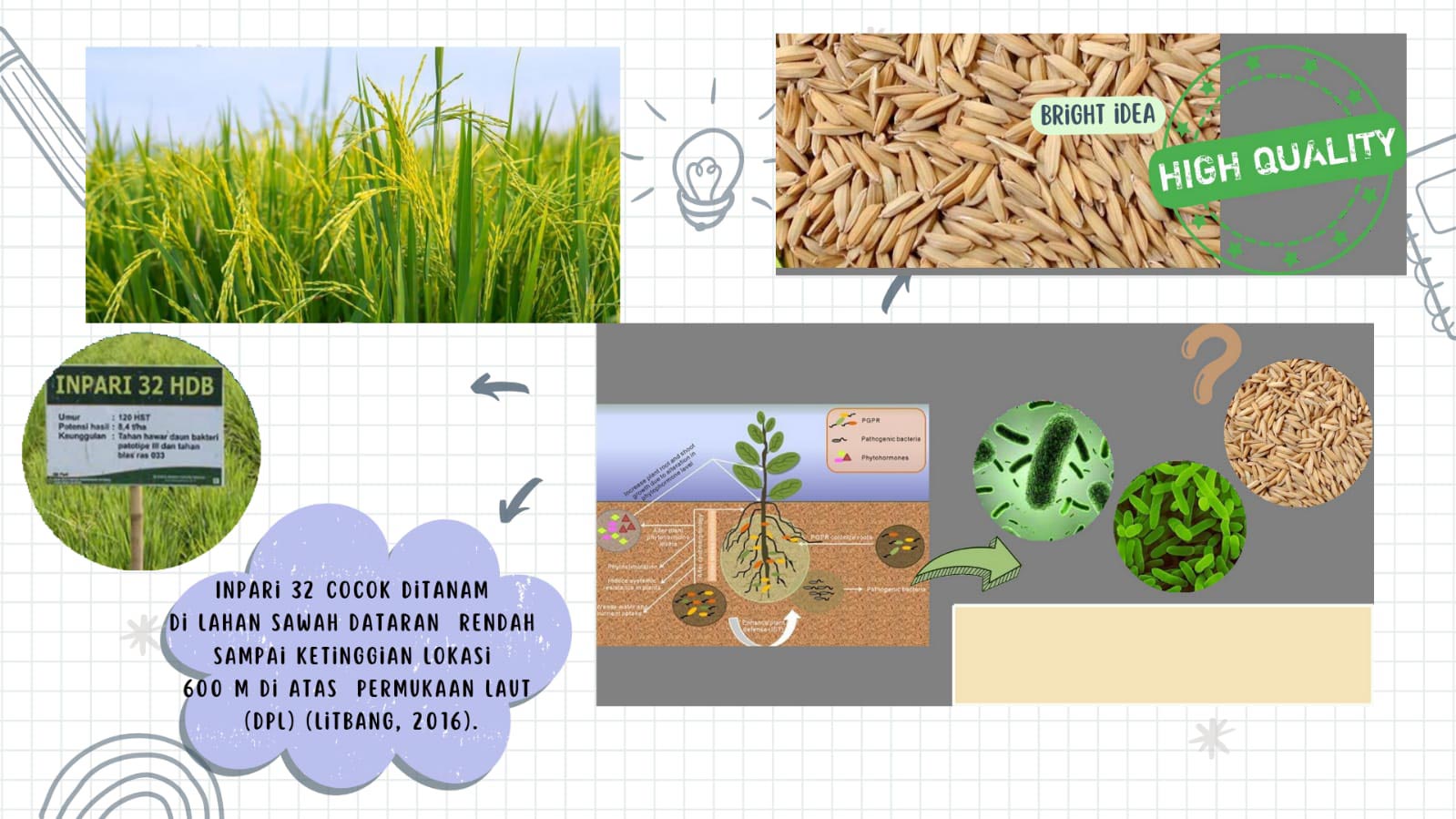TESTING SEED QUALITY BY SOAKING PGPR ON THE GERMINATION POWER OF RICE VARIETY INPARI 32 AT UPTD BPSB-P NTB
Keywords:
Germination Power, PGPR, Inpari 32 VarietyAbstract
In general, farmers use seeds unsuitable for planting rice, namely seeds left over from previous harvests because of the limited supply of rice seeds. Farmers may use rice seeds harvested one year ago for rice cultivation, without making efforts to maintain seed vigor, so that the quality of the seeds may be low, and this will have an impact on the field. Then there is a decrease in seed quality, less tolerance and non-uniformity, so production decreases. Therefore, soaking the seeds in a PGPR (Plant Growth-Promoting Rhizobacteria) solution is necessary. The method used is the Rolled Paper Test established in plastic (UKDdp). The variables observed were germination capacity (%) by counting all the sprouts whose normal germination criteria had been met, and plant growth (length of shoots and roots). Data analysis used one-way analysis of variance (ANOVA) with a standard deviation level of 0.05 and used SPSS 25.0. The results of this study were that the treatment that had the most influence on the germination of the Inpari 32 rice variety was the treatment that was not given PGPR (P0). The best germination performance was in the S.121 sample in the treatment not given PGPR (P0) at 89.00%. The treatment that was not given PGPR (P0) was not significantly different from that that was given PGPR (P2) at 82.67% and was significantly different from the treatment that was given distilled water (P1) at 80.67%. PGPR influences the growth of shoots and roots of rice sprouts.

